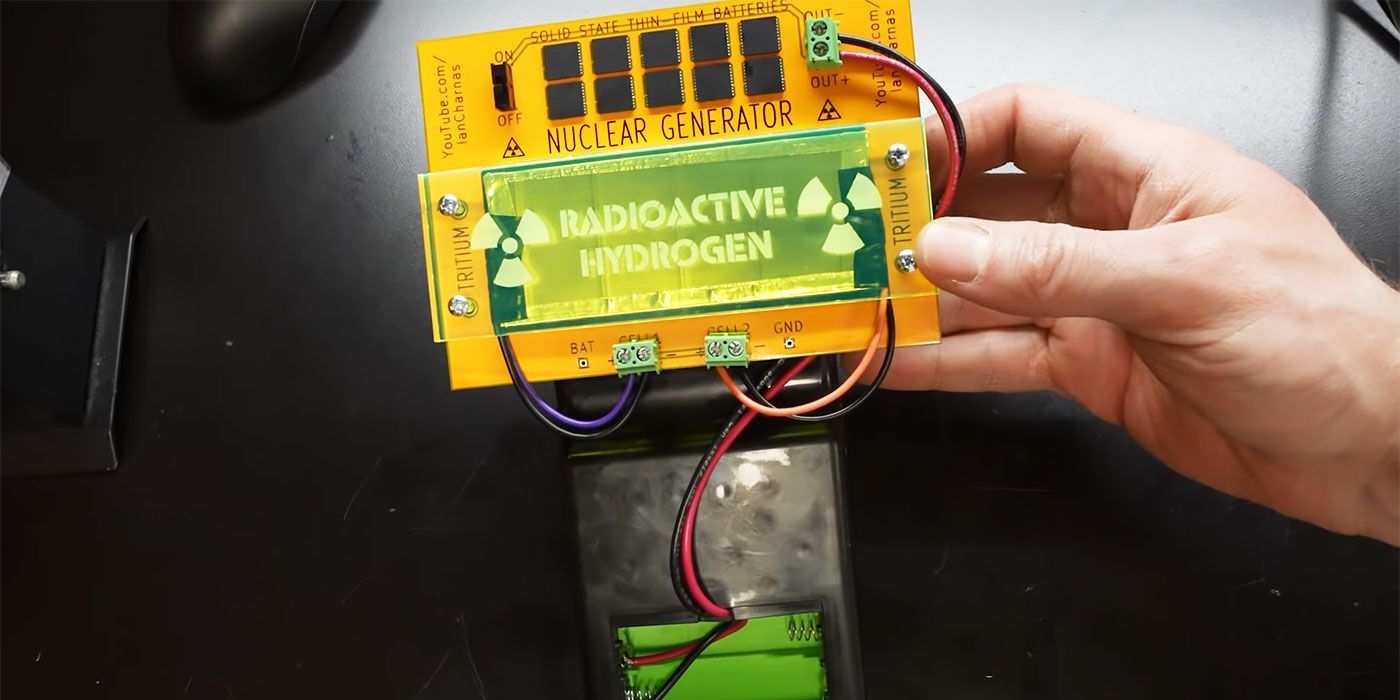
An engineer has successfully made a handheld Tetris game console powered by a nuclear generator. Tetris is one of the oldest video games that is still around to this day, with the original version still available on a multitude of platforms. Originally created in 1984, the tile-matching game has also been released in dozens of official and unofficial variants over the past few decades from a large number of developers.
One of the more recent iterations of the classic title is Tetris 99 from developer Arika, which is a battle royale inspired version of the game that pits 99 different people simultaneously playing Tetris against each other. The success of this strange battle royale project has inspired similar titles on the switch, including a limited-time Mario-themed version and a new Pac-Man battle royale. Tetris, meanwhile, has even made its way into other games, with one Minecraft player creating a fully playable version of Tetris within the popular sandbox game.
Engineer Ian Charnas recently published a new video on his YouTube channel wherein he utilizes a combination of tritium power cells, solar panels, thin-film solid state batteries, and his own PCB to create a nuclear generator. According to the video, Charnas initially planned to build a nuclear powered Game Boy, but he eventually had to switch to a handheld Tetris game console instead due to the former requiring too much power for the nuclear generator to feasibly supply, even when the energy is stored in the aforementioned batteries.
His initial test with the handheld Tetris game console ended up not working out, though, as it only lasted a few seconds even after allowing the batteries to charge for a week. Charnas guessed that the thin-film batteries he obtained were faulty, so he ended up creating a new PCB with new and different thin-film batteries. His second test, after letting the batteries charge for two months, proved to be successful, as the game ran for nearly an hour before the batteries ran out.
This amazing nuclear powered handheld Tetris game console is made possible because of the light produced by the glowing tritium power cells, which is then converted to power by the solar panels and stored in the batteries. According to Charnas, the nuclear generator he built is only able to produce 1.5 microwatts (which is only 1.5 millionths of a watt) which explains why powering a Game Boy, a system that requires almost a million microwatts, was not at all feasible. Fortunately, Game Boy fans who don't have access to nuclear power can use emulators, some of which have advanced features like split screen.
Even though he didn’t end up successfully building a nuclear powered Game Boy, a handheld Tetris game console powered by a nuclear generator is still pretty impressive. Even the concept of creating a long-term, low-power energy source using a combination of tritium cells (which last for years), solar panels, and batteries is pretty inventive. At a larger scale, the concept can definitely be used for other applications where providing constant power is difficult.
Source: Ian Charnas/YouTube
from ScreenRant - Feed https://ift.tt/3zgdCfN
 Reviewed by Riyad
on
July 15, 2021
Rating:
Reviewed by Riyad
on
July 15, 2021
Rating:

No comments: